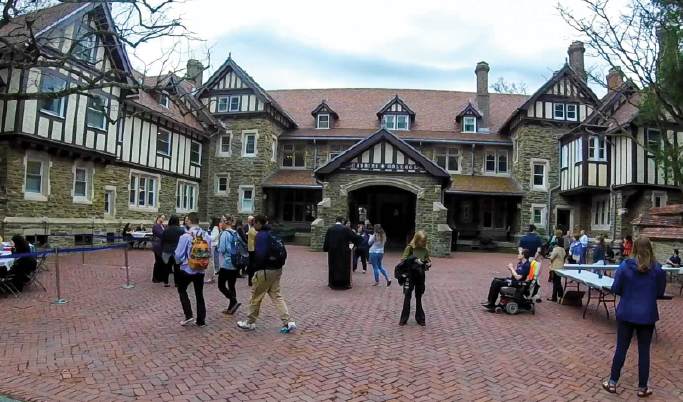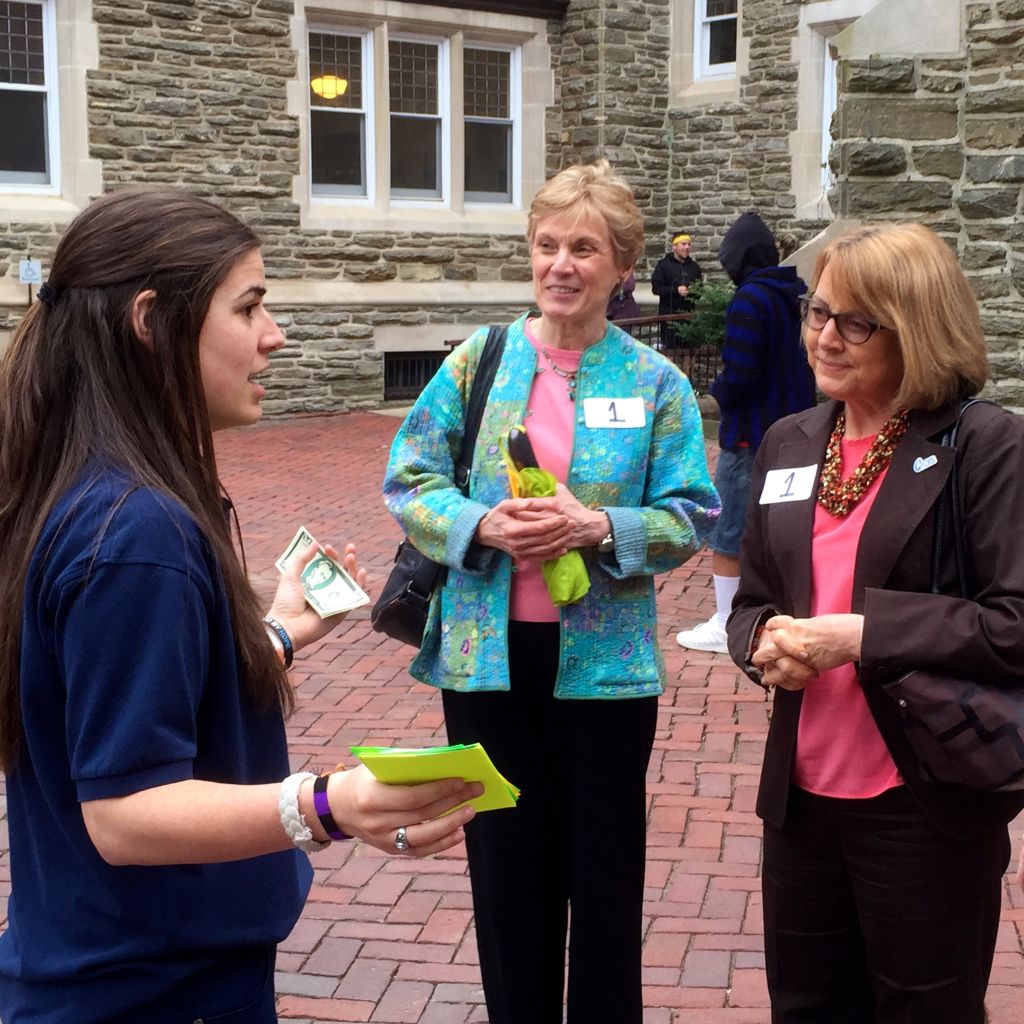
10 years ago, faculty and administrators at Villanova and Cabrini realized that introducing college students to the real world lives of people around the world would help to shape them into engaged and caring citizens.
Catholic Relief Services came to the conclusion that in order to engage young people in the United States, working through universities would be the best way.
With this realization, the two groups began to help each other.
CRS works to lessen suffering and help those who are in need in over 100 countries around the world.
On campus, CRS student ambassadors work to raise awareness and involvement for a variety of global humanitarian issues that impact the less fortunate all around the world.
CRS student ambassador president, Abby Pressimone, knew that she wanted to be involved with the program, because her sister was a part of it at the time she came to Cabrini.
“I just wanted to be a person that could inspire others to be passionate about the topics that CRS is passionate about,” Pressimone said. “I found a club that was about what I was passionate about: helping people. I got a chance to learn about issues that I never knew existed.”
On Tuesday, April 14, Cabrini celebrated 10 years of partnership with CRS. At the celebration, Dr. Donald Taylor and Joan Rosenhauer signed a partnership for the next 10 years. Throughout the partnership, Cabrini assisted CRS with its national global curriculum, Cabrini became the 17th college to receive fair trade status and students were given chances to lobby and advocate on over 500 lobby visits.
“It’s a profound privilege to have been here since the beginning of our partnership,” Maureen McCullough, regional CRS director of Northeast Mid-Atlantic, said. “Throughout the 10 years, it is amazing to see the impact not only on Cabrini and on CRS, but on the people that we seek to serve around the globe.”
Caroline Brennan, senior communications officer in the humanitarian response department, is on the CRS Emergency Response team. Her role is to travel to some of the most difficult and challenging parts of the world to capture the voices and stories of those who are in need of help, then bring them back to the United States.
“Often I am talking to people who have just been uprooted from their homes or their towns due to some crisis,” Brennan said. “They want to know if people know about them and if they care and I am often able to say that I do and tell them what people are doing here at home.”
Brennan traveled to Syria and Iraq to witness the struggles that these individuals are going through, first-hand.
“They truly think that they are alone in the world and that the safety net has just frayed to nothing beneath them,” Brennan said. “To be able to say, with confidence, that there are communities out there thinking of you and praying for you and doing all of this for you… it really means a lot.”
Since 2014, 51,705 children fled to the United States, in search for a better life, due to gang violence, according to Brennan’s presentation.
CRS has invested in programs to keep these children in schools and off the streets. These “youth builder” programs have provided over 5,000 children with the opportunity to learn and experience job-seeking opportunities. Of the children, 80 percent have completed the program and continued their education or went off to receive jobs.
Dr. Jerry Zurek’s first-year ECG class, Our Interdependent World, worked to put together a simulation titled, Refugees Seeking Safety, that allows participants to walk in the shoes of unaccompanied minors that flee Central America in hopes of starting lives that are better than those that they are leaving behind.
“When I first learned about unaccompanied minors, it really hit me how young they were,” Anna Laquintano, freshman co-project manager of the Refugees Seeking Safety simulation, said. “I have a 10-year-old brother and young cousins. If I knew that I had to watch them go, I wouldn’t be able to do it.”
Those who are fleeing from Central America are often those who are smuggled and becoming victims of human trafficking.
“People need to know about this. It is going on in our country every single day,” freshman co-project simulation manager, Emily Janny, said.
In the next 10 years, Cabrini and CRS hope to explore new ways to collaborate.
“What is happening as a result of this partnership is helping people,” McCullough said. “We are helping people toward living a fuller life and a having an overall fuller dignity as well.”
“Some people choose to ignore some issues and some people truly just don’t know about what’s going on,” Pressimone said. “If we want to change the world, we need to let people know what is happening. We need to spread the word in order to get the peace that we need.”



